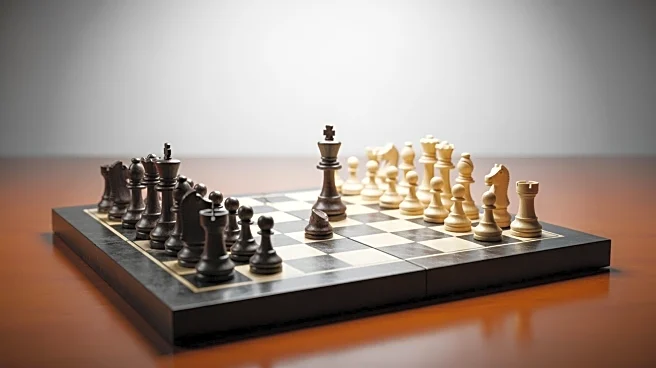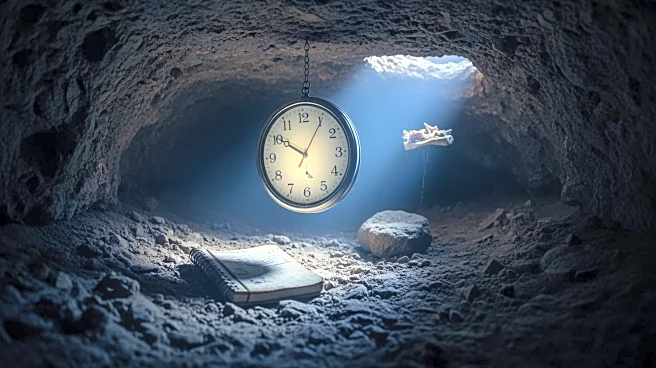What's Happening?
The Kremlin has dismissed President Donald Trump's recent proposal to freeze the current frontlines in Ukraine as a step towards a ceasefire. Russian presidential spokesperson Dmitry Peskov reiterated that Russia's stance on the conflict remains unchanged,
emphasizing that Russia prefers to negotiate a full peace deal rather than a temporary ceasefire. The Kremlin's response follows Trump's suggestion that both sides should halt at the battle lines to facilitate negotiations. This proposal came after a meeting between Trump and Ukrainian President Volodymyr Zelensky, where discussions included potential U.S. military support and Russia's territorial demands.
Why It's Important?
The Kremlin's rejection of Trump's proposal highlights the ongoing complexities in the Russia-Ukraine conflict and the challenges in achieving a diplomatic resolution. Russia's insistence on maintaining its current military objectives underscores the geopolitical tensions and the potential for prolonged conflict. The situation affects international relations, particularly between the U.S. and Russia, and has significant implications for European security. The U.S. administration's approach to the conflict, including military aid to Ukraine, remains a critical factor in the broader geopolitical landscape.
What's Next?
A summit between President Trump and Russian President Vladimir Putin is anticipated in Budapest, although no date has been set. This meeting could potentially address the ongoing conflict and explore avenues for peace talks. Additionally, a phone call between U.S. Secretary of State Marco Rubio and Russian Foreign Minister Sergei Lavrov is expected, which may further discuss the war and U.S.-Russia relations. Ukrainian President Zelensky has expressed willingness to join the summit if invited, indicating potential for trilateral discussions.















